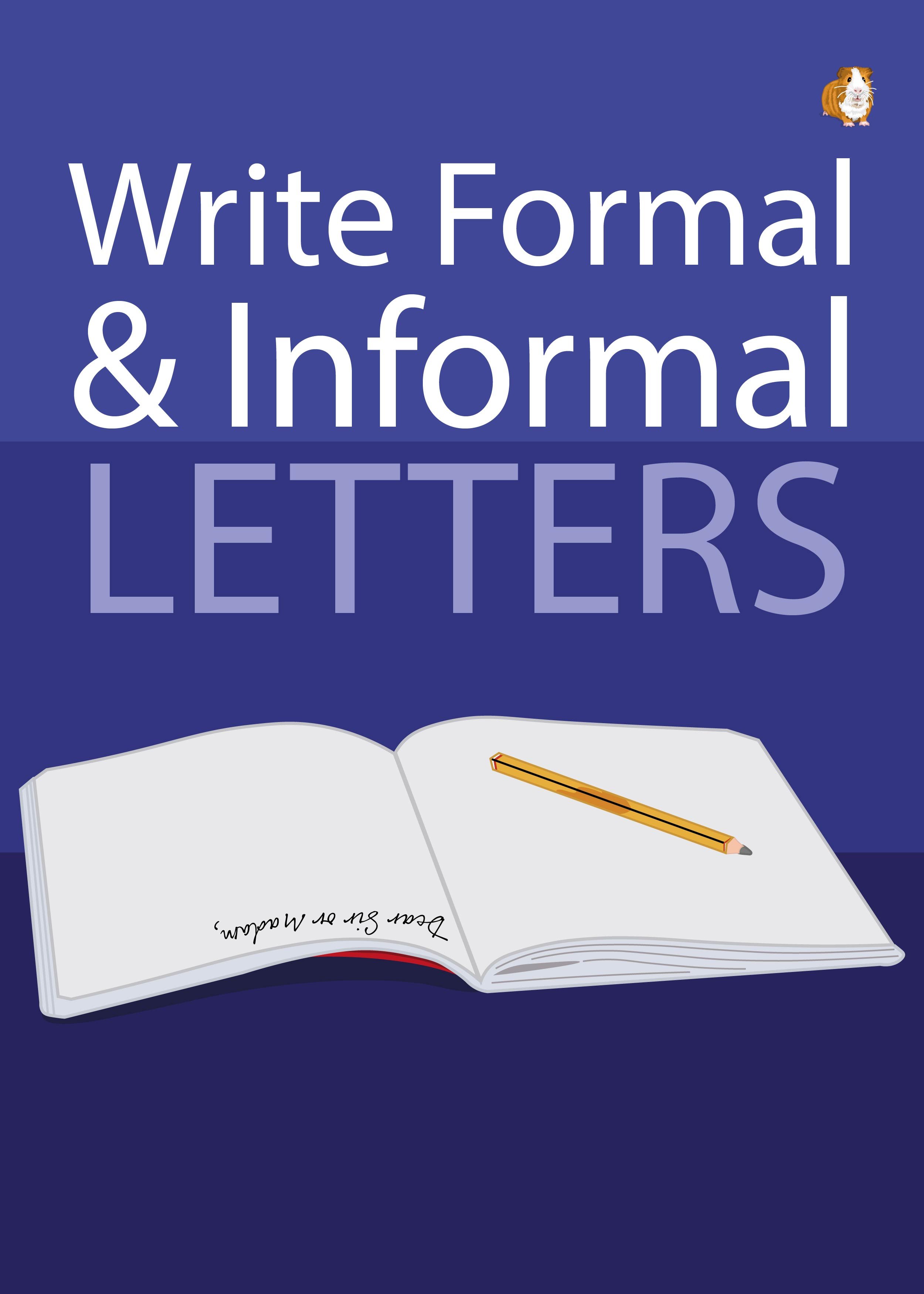 Image 1 of 6
Image 1 of 6

 Image 2 of 6
Image 2 of 6

 Image 3 of 6
Image 3 of 6

 Image 4 of 6
Image 4 of 6

 Image 5 of 6
Image 5 of 6

 Image 6 of 6
Image 6 of 6







Lets Write Formal And Informal Letters (7-13 years)
This work book includes 2 packs:
- Let's Write A Formal Letter
This pack teaches the child how to write a formal letter to argue a point.
The child should use Dear Sir or Madam and end with Yours faithfully or Dear Mr... or Mrs... and end with Yours sincerely. They should use point, evidence and explanation for each paragraph. They will learn how to introduce their viewpoint in a topic sentence, give some evidence and explain it. They will learn how to introduce the counter argument and then to argue against it. The child should read the example letters and prompts and then write their own.
Example Letters Include:
complaints
Letters to council
Help with hay fever
Bad builders
The train is dirty
- Let's Write An Informal Letter
The child should read the examples of informal letters, written in colloquial English. Then, they should write their own versions.
Example letters include
I'm sorry you fell off your horse
I found a purse at the supermarket
Thank you for organising...
Thank you for my present
This series of work packs provides prompts to encourage children to write. It provides starting points, to encourage even the most reluctant writers. Featuring a lively, 'magazine style' format to appeal to children of all abilities, these packs are particularly recommended as preparation for creative writing tasks at 11+ or S.A.T.S.
The writer herself often dips into the lively collection of imaginative stories and non fiction articles, to teach her students in tutorials. The packs feature detailed prompts on how to plan and write stories and letters, as well as help with non fiction tasks - writing diaries, reports and persuasive leaflets. There is also plenty of practice in writing techniques - variation of sentences, connectives and grammar and punctuation tips.
19 pages
This work book includes 2 packs:
- Let's Write A Formal Letter
This pack teaches the child how to write a formal letter to argue a point.
The child should use Dear Sir or Madam and end with Yours faithfully or Dear Mr... or Mrs... and end with Yours sincerely. They should use point, evidence and explanation for each paragraph. They will learn how to introduce their viewpoint in a topic sentence, give some evidence and explain it. They will learn how to introduce the counter argument and then to argue against it. The child should read the example letters and prompts and then write their own.
Example Letters Include:
complaints
Letters to council
Help with hay fever
Bad builders
The train is dirty
- Let's Write An Informal Letter
The child should read the examples of informal letters, written in colloquial English. Then, they should write their own versions.
Example letters include
I'm sorry you fell off your horse
I found a purse at the supermarket
Thank you for organising...
Thank you for my present
This series of work packs provides prompts to encourage children to write. It provides starting points, to encourage even the most reluctant writers. Featuring a lively, 'magazine style' format to appeal to children of all abilities, these packs are particularly recommended as preparation for creative writing tasks at 11+ or S.A.T.S.
The writer herself often dips into the lively collection of imaginative stories and non fiction articles, to teach her students in tutorials. The packs feature detailed prompts on how to plan and write stories and letters, as well as help with non fiction tasks - writing diaries, reports and persuasive leaflets. There is also plenty of practice in writing techniques - variation of sentences, connectives and grammar and punctuation tips.
19 pages
























